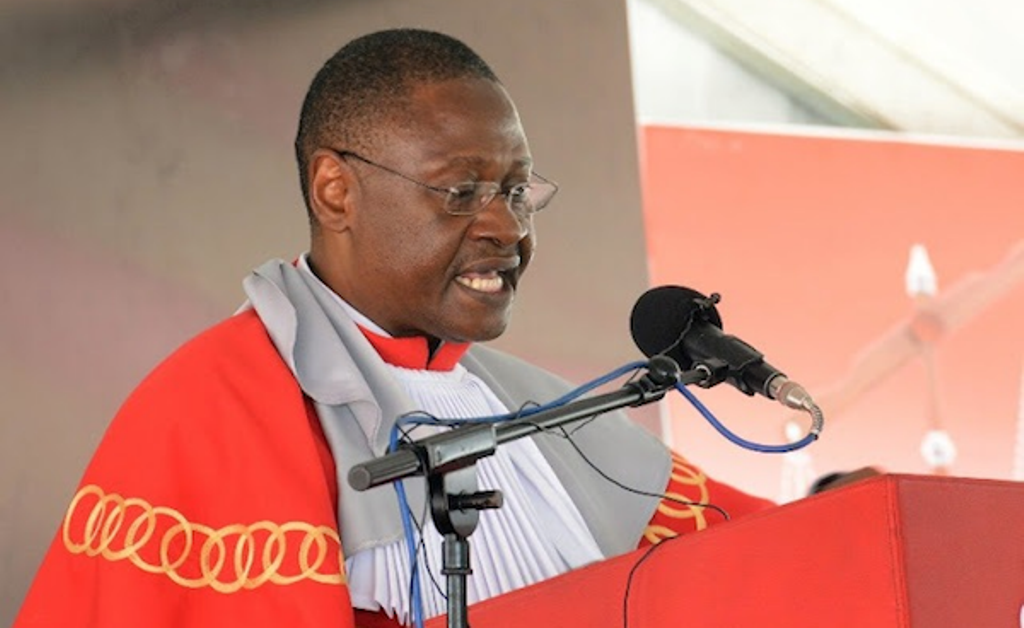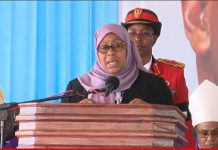AfricaPress-Tanzania: THE Judiciary is doing every possible means to comply with recent amendments of the law aimed at facilitating the use of Kiswahili in judicial proceedings, notably preparation of judgments, as directed by President John Magufuli, it has been stated.
This was revealed by the Chief Justice (CJ), Prof Ibrahim Juma while officiating the swearing in of the second batch of 71 new Resident Magistrates at Karimjee grounds in Dar es Salaam over the weekend.
He recalled that on February 13, 2021, the Parliament made some amendments of the law to facilitate the use of Kiswahili in drafting decisions and preparation of proceedings at the District Courts, Resident Magistrates Courts, High Court and Court of Appeal.
“Currently the Judiciary of Tanzania continues to translate by-laws, regulations, court forms and various documents from English to Kiswahili. The Principal Judge has asked the High Court Judges to volunteer in translating the documents that are in the Chief Justice’s capacity to publish,” he said.
Prof Juma pointed out that many judges have come forward and have already done a great job of translating the documents which put the Judiciary in a position to be able to use Kiswahili language without any conflicts of nonessential language.
“As the Judiciary of Tanzania, we are doing everything possible to the best of our ability in these preparations. You too should be a part of that effort. You will begin judicial work in the Primary Courts. So, you will automatically use Kiswahili language,” the CJ told the magistrates.
He said that there are still many court forms and rules applicable at District Courts, Resident Magistrates Courts, High Court and Court of Appeal that needed to be interpreted by judicial officers themselves because they are the ones who use them regularly and know the true meaning of the words involved.
“We should not rely on expertise outside the users of these rules to interpret them. It is you the magistrates applying them, who can give a translation that will fit exactly as it was in English language,” Prof Juma said.
Being part of improvements within the judiciary, the chief justice implored the new magistrates who are ready to translate the court rules to come forward and inform the Chief Registrar on the areas that they could work on, something which would help them identify who will be the future leaders.
When officiating at the Law Day celebrations in Dodoma recently, President Magufuli said that though using Kiswahili in legal issues needed a wider discussion, the time has come to put in place strategies that will enable Kiswahili language to be used in court and legal matters in general at all levels He explained that failure to use the language in such legal issues not only deprives citizens of their rights but also increases the cost for them in looking for interpreters.
The president said that Kiswahili was being used everywhere, including in meetings organised by the Organisation of African Unity (OAU), Southern African Development Community (SADC) and East African Community (EAC).
“I see no reason why the Judiciary does not want to use Kiswahili. We must change. Let us be patriotic and love what is ours. You find the Judge speaking Kiswahili, but when he goes there he uses English. This is a big challenge,” he said.
This is the second batch of 142 new magistrates who have been employed by the Judiciary of Tanzania to increase the work force in dispensing justice in time to the people.
The new recruits passed through interviews in various phases between September 14 and 26, 2020. The Chief Justice thanked the Head of State for the special approval of the Judiciary to recruit 100 magistrates.
President Magufuli issued the permit on the Law Day of 2020 and reminded the same on the Law Day of 2021.
“This is a good example of the empowerment that the Executive Arm of State has provided to the Judiciary of Tanzania, especially at a time when employment in public institutions is very limited,” said Prof Juma.
The CJ urged the new magistrates to focus on good governance and accountability, which is part of the life of judicial officers, and also to be responsible in the whole concept of good resource management and timely justice as a whole.







